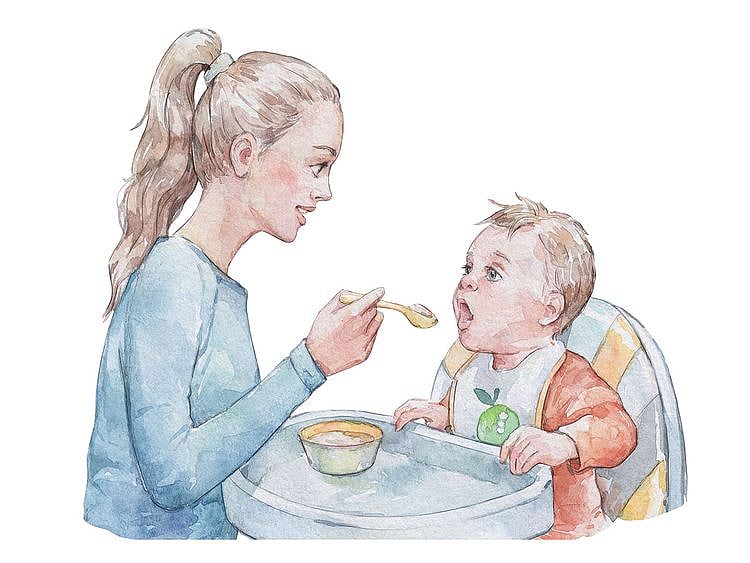How to wean a baby off breast milk
Experts explain strategies to help mums ease the transition from breast milk to other food

According to the World Health Organisation, a baby should be on a diet comprising exclusively of breast milk for the first six months of his or her life. Thereafter, other – nutritious - foods should be introduced.
Does exclusively breastfeeding mean no water?
‘Exclusive breastfeeding’ is defined as giving no other food or drink – not even water – except breast milk. It does, however, allow the infant to receive oral rehydration salts (ORS), drops and syrups (vitamins, minerals and medicines). Giving water to young babies puts them at risk of diarrhoea and malnutrition. Water may not be clean and cause the baby to have infections. Giving water may also cause the baby to drink less breastmilk or to stop breastfeeding early and therefore cause malnutrition. If mothers give water instead of breastfeeding it will also cause the mother to have less milk in the future. Source: World Health Organisation
The time of weaning – or de-latching a child from a breast – is a vulnerable one and requires gentle manoeuvring for the emotional health of both mother and baby. Malin Ghavami, Lead midwife/Head Nurse at baby and child healthcare provider Nightingale Dubai, says: “Plan to stop breastfeeding at a time when there are no major changes around you in life, if possible.”
Should my diet change if I want to stop breastfeeding?
No, says Ghavami. “You can eat and drink as usual when you stop breastfeeding. Reducing fluid intake does not affect the amount of milk, but can instead cause you to have a lack of fluids.”
“Milk production decreases as the baby sucks less and less. In the end, the baby usually gets tired of the breast and does not make an effort to grab the breast and start sucking.
“There are medicines that reduce milk production that can be used if necessary. They are prescribed by a doctor,” she adds.
How to wean a baby
Do it slowly, say the experts. “You can decrease one lactation session at a time/day, wait for a few more days before you can remove another breastfeeding session. Continue until the milk has decreased and you have no problems with your breasts. It is common for the breasts to become tense for a few days after breastfeeding has ended,” says Ghavami.
“For some, it works well that the person who breastfeeds sleeps without the baby for a few nights, and that a partner or other close relative sleeps with the baby. They can also feed the baby if necessary,” she adds.
Dr Anuradha Ajesh, Specialist – Paediatrics at Bareen International Hospital, offers the following steps:
How to handle a tantrum mid weaning process
No one likes change, least of all little babies. Be prepared for hiccups and tears and a few tantrums. But there are some things that you can do to ease the transition.
“Babies consider mums as their part and they nurse not only for food, but also for emotional comfort, sense of security and love. When child shows tantrum, ignore it and distract the child. He or she will slowly understand that tantrums will not work for breastfeeding. Give them a lot of attention and love. Slowly the child will understand, even if breastfeeding is stopped, mum will still love them like before,” suggests Dr Ajesh.
“Provide alternatives at the time of breastfeeding,” she adds. “Suggest some interesting activities at the time child used to breastfeed like going outside, offering some food the child likes, reading storybooks, etc.”
Tense painful breasts – how can I mum avoid these during the weaning process?
Ghavami offers a few tips for the mum. She says, “It is common for breasts to become tense when you reduce breastfeeding. Even tenser they can become if you need to finish abruptly. Here's what to do if your breasts hurt:
It usually gets easier within a week, she adds.
Have a topic you'd like us to cover? Write to us at parenting@gulfnews.com
Sign up for the Daily Briefing
Get the latest news and updates straight to your inbox
Network Links
GN StoreDownload our app
© Al Nisr Publishing LLC 2026. All rights reserved.